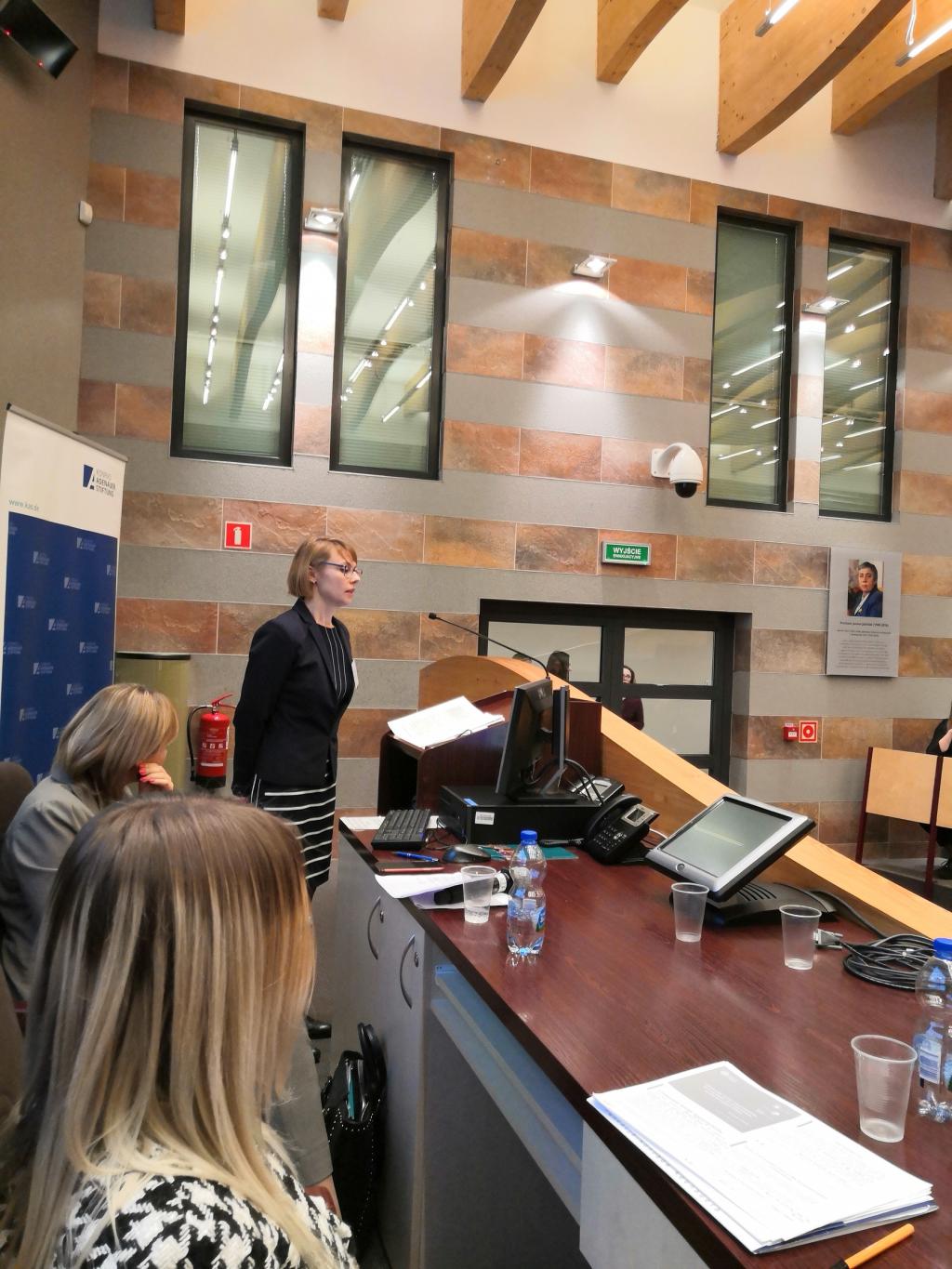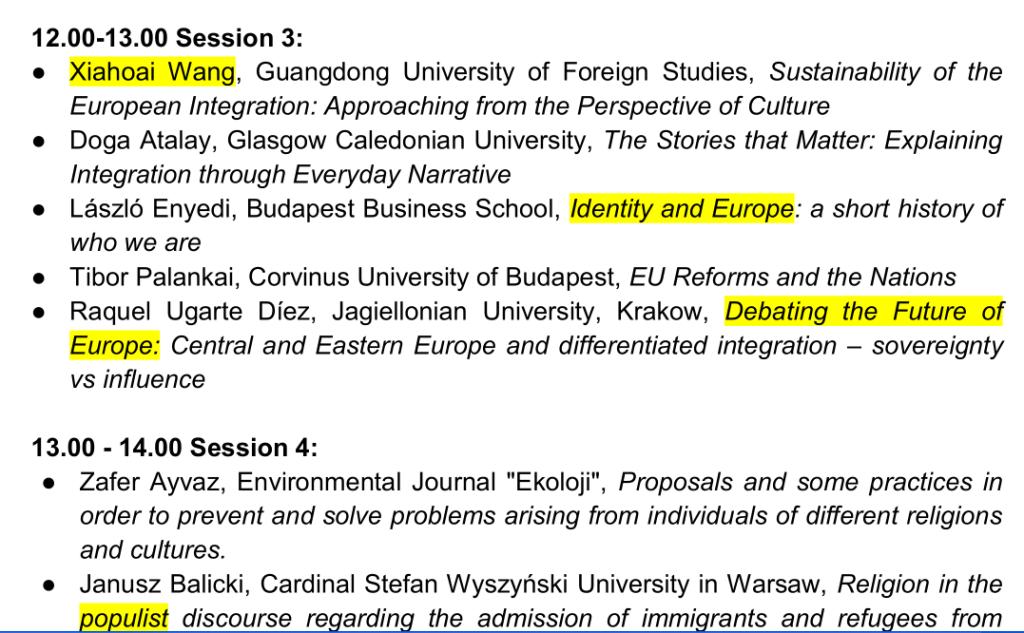Prof. WANG attended the PECSA International Conference “Connecting the European Union of Shared Aims, Freedoms, Values and Responsibilities” that was held on 5 December 2019 and attended the meeting with PECSA research network on 6 December 2019 at the SGH Warsaw School of Economics, Poland.
“The conference was organized by Polish European Community Studies Association (PECSA), Jean Monnet Chair of the European Union and Department of Political Studies of the Collegium of Socio-Economics at SGH Warsaw School of Economics (Poland), Konrad Adenauer Foundation in Poland, Institute of Political Science and Inter-Institutes Migration Research Unit of the Cardinal Stefan Wyszyński University in Warsaw, Research Center on European Integration at the University of Gdańsk and Partners. It will contribute to the debate on the most current issues of the European integration processes, determining their scope and dynamics, such as migration, discrimination, social exclusion, international instability, internal and external security. This is vital for the success of integration processes as they are based on the axiological foundations that allow 28 Member States and their societies to cooperate and the EU to act as one united although diversified actor. Special attention will be paid to the contribution that academia can make to policy-making in order to support and protect the shared European values of human dignity, freedom, democracy, equality, the rule of law and respect for human rights – values that represent foundations of any free and democratic society.”



The title of the presentation given by Prof. WANG to the conference is “Sustainability of the European Integration: Approaching from the Perspective of Culture”. The Abstract of the paper is as follows:
Abstract Being a multidimensional process, European integration should be driven forward by economic, political, social and cultural forces simultaneously. However, the main phases of European Integration reveal a somewhat different story, where more economic and political rather than cultural factor is emphasized. It is evident that culture did not come into the sight of the founding fathers of the EC during the phase of 1950s, a period of “rescuing the nation-state” and of pragmatic cooperation. Culture and identity began to appear as key dimensions of European Integration in the EU documents during the phase of 1980s. The early 1990s turned a new page of the European integration, which expanded from the spheres of economies and politics into social integration. Meanwhile, since the 1980s the EU has made its efforts to promote the construction of European Identity by formulating policies in language, education, culture and other fields. Since 2000, the overall progress of European integration slowed down. An array of crises hit Europe, making the future of European Integration at stake. In a word, the economic and political impetuses for integration were relatively reduced. A new source of impetus should be found to keep the European Integration sustainable. After an analysis of the old driving forces, particularly the declining of economic and political forces, this paper examines the issue of sustainability of European integration from the perspective of culture, focusing on the reasons why and how culture can become the new driving force for European Integration.
Key words: culture, sustainability, European integration, EU

.ppt of Prof. WANG's presentation:
